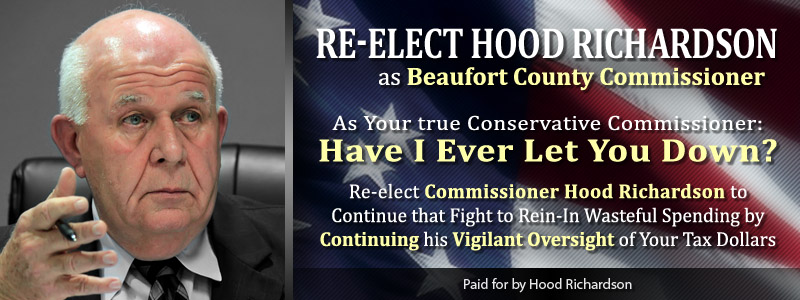The First Amendment Guarantees ALL Freedoms, including a Truthful Press
Judicial Watch, Allied Educational Foundation File Amici Brief for Supreme Court to Hear Harvard Race-Based Admissions Case
Press Release:
Washington, DC Judicial Watch announced today that it filed an amici curiae brief alongside the Allied Educational Foundation (AEF) in support of Students for Fair Admission's petition for a writ of certiorari to the Supreme Court challenging the decision of the U.S. District Court for the First Circuit that upholds Harvard College's race-based affirmative action admissions program. (Students for Fair Admission v. President & Fellows of Harvard College (No. 20-1199)).
Students for Fair Admission argues that Harvard's admissions program intentionally discriminates against Asian Americans on the basis of race violates Title VI of the Civil Rights Act, which bans unconstitutional race-based admissions by public universities. Students for Fair Admission also argues that the Supreme Court should overrule the decision in Grutter v. Bollinger which held that institutions of higher education could use race as a factor in admissions. The petitioners allege that this discriminatory admission's policy violates the Fourteenth Amendment's Equal Protection Clause:
In their brief, Judicial Watch and AEF note that the Equal Protection Clause was passed to stop discrimination:
The brief rejects that discriminating by race in admissions can be justified by "diversity" goals:
Judicial Watch and AEF argue that past Supreme Court rulings which failed to enforce the Equal Protection Clause's prohibition against racial classifications have not stood the test of time. Citing Plessy v. Ferguson, Korematsu v. United States, and Hirabayashi v. United States they state:
Additionally, Judicial Watch and AEF argue that this case should be heard because the Supreme Court has failed to set clear precedent on the issue of race-based admissions programs for lower courts to rule on for 43 years:
"Court-sanctioned racial discrimination in college admissions is contrary to federal law and the U.S. Constitution," stated Judicial Watch President Tom Fitton. "The Supreme Court should stop abusing its powers to protect racial discrimination and uphold the rights of Asian students and other innocents punished for being the wrong race by Harvard and other universities."
The Allied Educational Foundation is a charitable and educational foundation dedicated to improving the quality of life through education. In furtherance of that goal, the Foundation has engaged in a number of projects, which include, but are not limited to, educational and health conferences domestically and abroad. AEF has partnered frequently with Judicial Watch to fight government and judicial corruption and to promote a return to ethics and morality in the nation's public life.
Go Back
Washington, DC Judicial Watch announced today that it filed an amici curiae brief alongside the Allied Educational Foundation (AEF) in support of Students for Fair Admission's petition for a writ of certiorari to the Supreme Court challenging the decision of the U.S. District Court for the First Circuit that upholds Harvard College's race-based affirmative action admissions program. (Students for Fair Admission v. President & Fellows of Harvard College (No. 20-1199)).
Students for Fair Admission argues that Harvard's admissions program intentionally discriminates against Asian Americans on the basis of race violates Title VI of the Civil Rights Act, which bans unconstitutional race-based admissions by public universities. Students for Fair Admission also argues that the Supreme Court should overrule the decision in Grutter v. Bollinger which held that institutions of higher education could use race as a factor in admissions. The petitioners allege that this discriminatory admission's policy violates the Fourteenth Amendment's Equal Protection Clause:
- No State shall make or enforce any law which shall abridge the privileges or immunities of citizens of the United States; nor shall any State deprive any person of life, liberty, or property, without due process of law; nor deny to any person within its jurisdiction the equal protection of the laws.
In their brief, Judicial Watch and AEF note that the Equal Protection Clause was passed to stop discrimination:
- [O]ne of the core purposes of the Equal Protection Clause is to guarantee that individuals will be free from discrimination based upon race. It should come as no surprise to anyone that legalizing the use of race in deciding who is admitted to schools of higher learning has caused enormous conflict, including among members of this Court.
The brief rejects that discriminating by race in admissions can be justified by "diversity" goals:
- College and university administrators might promote greater cross-racial understanding and tolerance in their students, not by racially discriminating against applicants for admission to their schools, but by working to make their schools more tolerant of the expression of different points of view. Admissions programs that intentionally discriminate on the basis of race may themselves be negatively affecting the level of racial understanding and tolerance on today's college campuses.
Judicial Watch and AEF argue that past Supreme Court rulings which failed to enforce the Equal Protection Clause's prohibition against racial classifications have not stood the test of time. Citing Plessy v. Ferguson, Korematsu v. United States, and Hirabayashi v. United States they state:
- Rulings by this Court which held that under the Equal Protection Clause individuals may be treated differently based on race have been wrongfully decided...
- In each of these three cases, the Court ruled that treating individuals differently based on a racial classification did not violate the Equal Protection Clause. In each of these cases, the Court found that the government had justified its disparate treatment under the strict scrutiny test. These infamous cases demonstrate how misguided it is for this Court to sanction discriminatory racial classifications.
Additionally, Judicial Watch and AEF argue that this case should be heard because the Supreme Court has failed to set clear precedent on the issue of race-based admissions programs for lower courts to rule on for 43 years:
- The Bakke line of cases has failed to provide guidance to lower courts and university administrators about what constitutes a permissible race-based admission program. Bakkehas led to five rulings over 43 years, in which there are 26 separate opinions. In each, the Court attempts to explain the constitutional rationale for allowing race-based preferences — even though these plainly conflict with the original meaning and text of the Equal Protection Clause.
"Court-sanctioned racial discrimination in college admissions is contrary to federal law and the U.S. Constitution," stated Judicial Watch President Tom Fitton. "The Supreme Court should stop abusing its powers to protect racial discrimination and uphold the rights of Asian students and other innocents punished for being the wrong race by Harvard and other universities."
The Allied Educational Foundation is a charitable and educational foundation dedicated to improving the quality of life through education. In furtherance of that goal, the Foundation has engaged in a number of projects, which include, but are not limited to, educational and health conferences domestically and abroad. AEF has partnered frequently with Judicial Watch to fight government and judicial corruption and to promote a return to ethics and morality in the nation's public life.
| UNC Governing Boards Fiddle While Reason Burns | Judicial Watch Guest Editorial, Editorials, Op-Ed & Politics | Hunter Biden Not Seeking Plea Deal in Federal Tax Probe |
Latest Op-Ed & Politics
|
Pro death roundtable
Published: Wednesday, April 24th, 2024 @ 12:39 pm
By: Countrygirl1411
|
|
populist / nationalist anti-immigration AfD most popular party among young voters, CDU second
Published: Wednesday, April 24th, 2024 @ 11:25 am
By: John Steed
|
|
political scheme behhind raid on Mar-a-Lago
Published: Wednesday, April 24th, 2024 @ 9:16 am
By: John Steed
|
|
how many of these will come to North Carolina?
Published: Tuesday, April 23rd, 2024 @ 1:32 pm
By: John Steed
|
|
Barr had previously said he would jump off a bridge before supporting Trump
Published: Tuesday, April 23rd, 2024 @ 11:37 am
By: John Steed
|
|
Babis is leader of opposition in Czech parliament
Published: Tuesday, April 23rd, 2024 @ 10:28 am
By: John Steed
|
|
illegal alien "asylum seeker" migrants are a crime wave on both sides of the Atlantic
Published: Tuesday, April 23rd, 2024 @ 9:44 am
By: John Steed
|
|
only one holdout against acquital
Published: Tuesday, April 23rd, 2024 @ 9:01 am
By: John Steed
|
|
DEI now includes criminals?
Published: Monday, April 22nd, 2024 @ 8:33 pm
By: John Steed
|
|
Biden regime intends to force public school compliance as well as colleges
Published: Monday, April 22nd, 2024 @ 1:55 pm
By: John Steed
|
|
clamps down on oil drilling in Alaska
Published: Monday, April 22nd, 2024 @ 9:09 am
By: John Steed
|
























